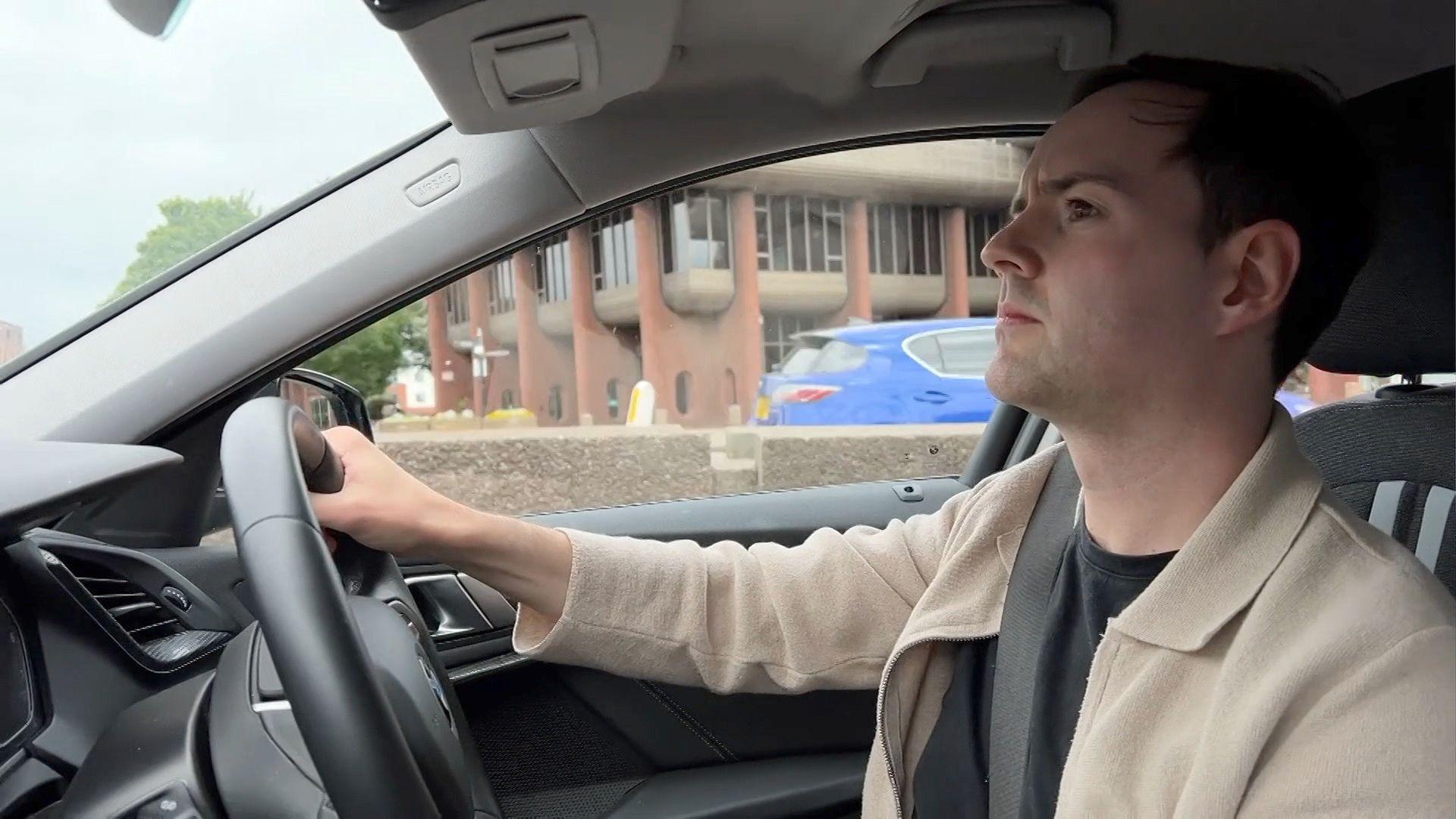'Car cloning is a menace of modern day motoring'
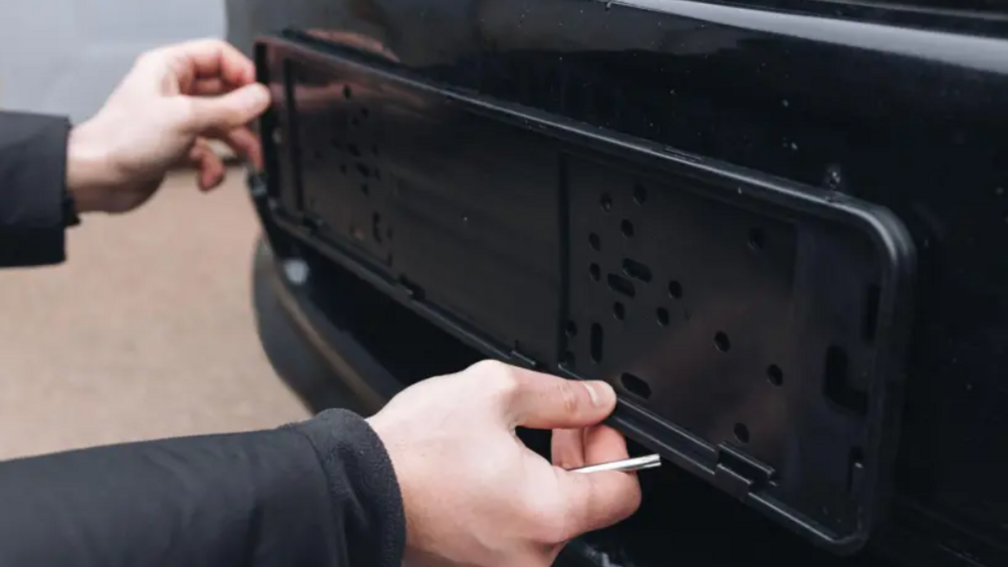
Car cloning involves criminals stealing or copying another car's registration plates
- Published
Drivers have been describing the impact of having their number plates cloned, leaving them with fines and charges for offences they did not commit.
Lou from Kent, who had wrongly received parking charges, said it was "really scary" when she was then accused of speeding more than 200 miles (321km) away in West Yorkshire.
Surrey Heath MP Dr Al Pinkerton is calling for tougher fines for those cloning cars after a constituent was left with hundreds of pounds in fines for a car she wasn't driving.
The Driver and Vehicle Licensing Agency (DVLA) said it was working closely with the National Police Chiefs' Council, Trading Standards and other government departments to improve identification of cloned plates.
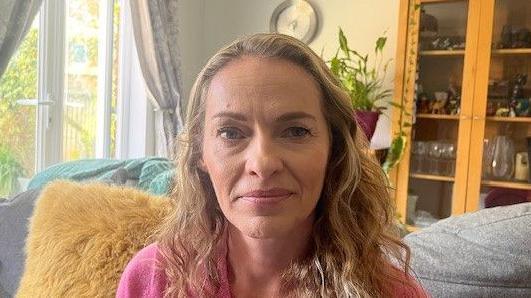
Lou said she feared ending up with points on her licence for offences she did not commit
Over the course of several months, Lou said she received penalty notices from different boroughs of London for unpaid parking charges and driving in bus lanes.
"Some of those had some better pictures on and I started to see some slight differences between that car and my car," she said.
After the London penalties dried up, she was contacted by police to say she was being prosecuted for speeding.
"Luckily I hadn't been anywhere near West Yorkshire at the time, so it was a bit easier to prove I wasn't there," she said.
"But I did think am I suddenly going to get points on my licence for something I hadn't done?"
What is car cloning?
Car cloning involves criminals stealing or copying another car's registration plates, often choosing plates from a similar looking vehicle
The scam involves criminals using another person's registration plates and running up fines and penalties which then land on their unsuspecting victims, who only realise there is an issue when the fines start arriving
Police say once reported, those affected can then contact the organisation that issued the fine, explain the vehicle has been cloned, that police have been informed, request cancellation and send supporting evidence if available
Sue Whitehead, from Camberley, Surrey, said she was left with hundreds of pounds of fines after someone copied her number plate and sped around London in a car that was a different model to her own.
"It feels like your identity is being taken away and it took me a long time to prove that it wasn't me involved in any criminal actions," she said.
Phil Outram said he only realised his car's number plate had been copied after receiving fixed penalty notices for non-payment of the Dart Charge at the Dartford Crossing.
He told BBC South East how the fines were cancelled after he showed video footage proving his car was at home at the time a similar vehicle was making the crossings.
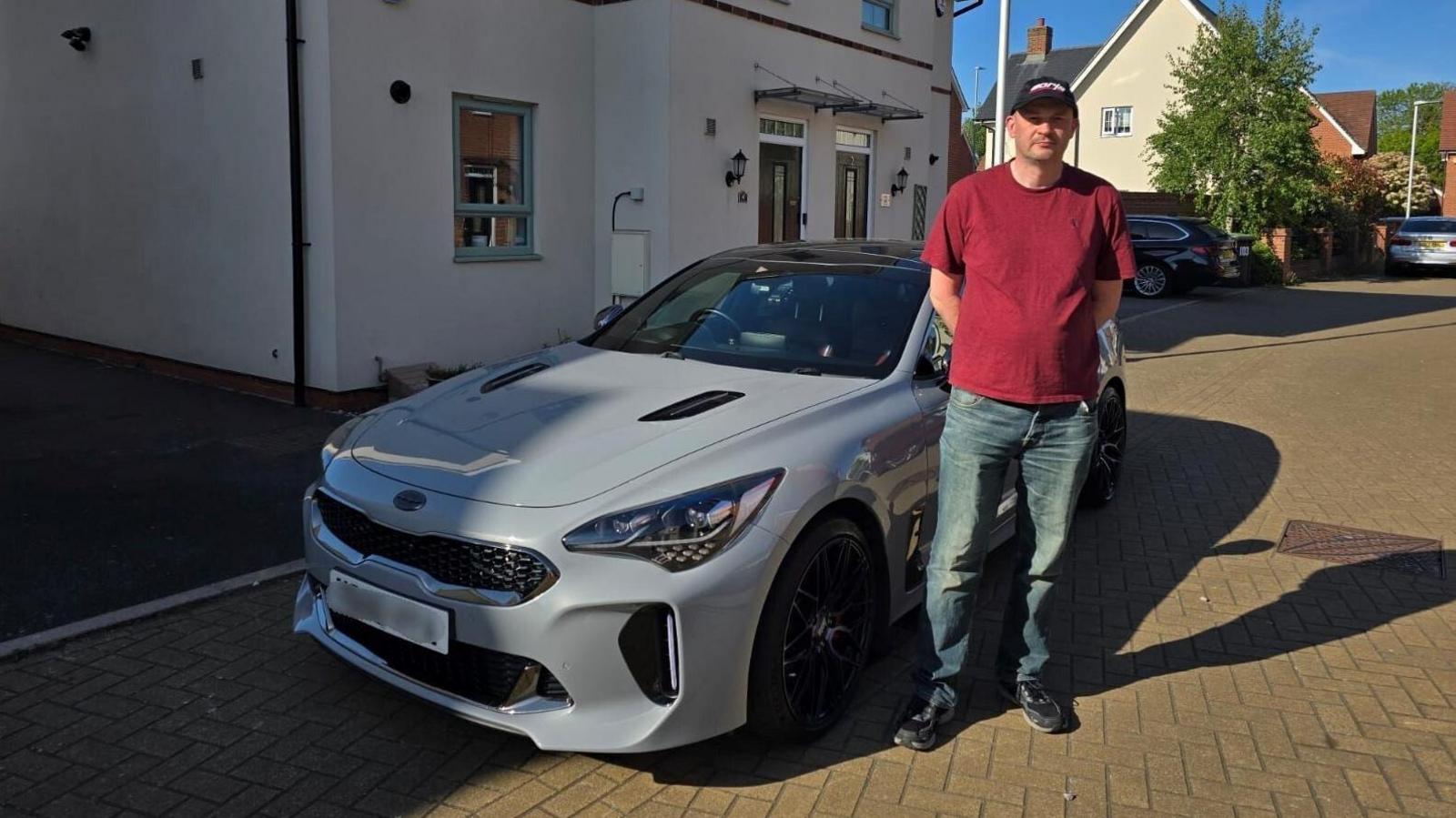
Phil's car was on his driveway when the alleged Dart charge contravention took place
In Phil's case he said the three penalty charges were quickly cancelled, but he said the onus was on him to prove it wasn't his vehicle at the crossing.
"Whilst it was the same type of car, it was a lower model that lacked the sun roof," he said.
"I had time-stamped video evidence of my car on the drive at the time of the alleged offence."
Mr Outram feared the car cloners could have committed more serious offences.
"I was concerned that I may not be able to prove my innocence and what would happen if the perpetrator committed a more serious driving offence, had an accident or committed a crime," he said.
Figures obtained by the BBC show that between 2020 and 2024, more than 25,000 fixed penalty notices issued by Dart Charge were cancelled in relation to stolen or cloned number plates.
National Highways said the issue of cloned plates was not isolated to Dart Charge.
They say customers have also received speeding tickets and PCNs from other authorities due to this issue.
Report to authorities
"We have a straightforward process in place for customers to challenge a penalty charge notice (PCN)," a National Highways spokesperson said.
"If a crime is believed to have been committed, such as the cloning of a number plate, this should be reported to the relevant authorities.
"This can then be used as evidence to support their challenge against a PCN."
Last year there were 10,460 reports to the DVLA about correspondence, fines, or penalties that drivers had received from third parties, about the use of vehicles they didn't recognise or accept responsibility for.
That's up from 7,377 cases in 2020.
But those figures also include instances of potential misidentification of vehicle registration numbers by automatic number plate recognition cameras.
The figures were obtained by the RAC, whose head of policy Simon Williams said that "car cloning is very much the menace of modern day motoring".
"There is a certain element of society who want to break the law and get away with fines or parking charge notices by having a cloned number plate," he said.
"A person is left having to prove it wasn't them."
The DVLA said where appropriate, it might provide an alternative age-related registration number to a driver, but the keeper would be responsible for purchasing the replacement number plates showing the new registration number.
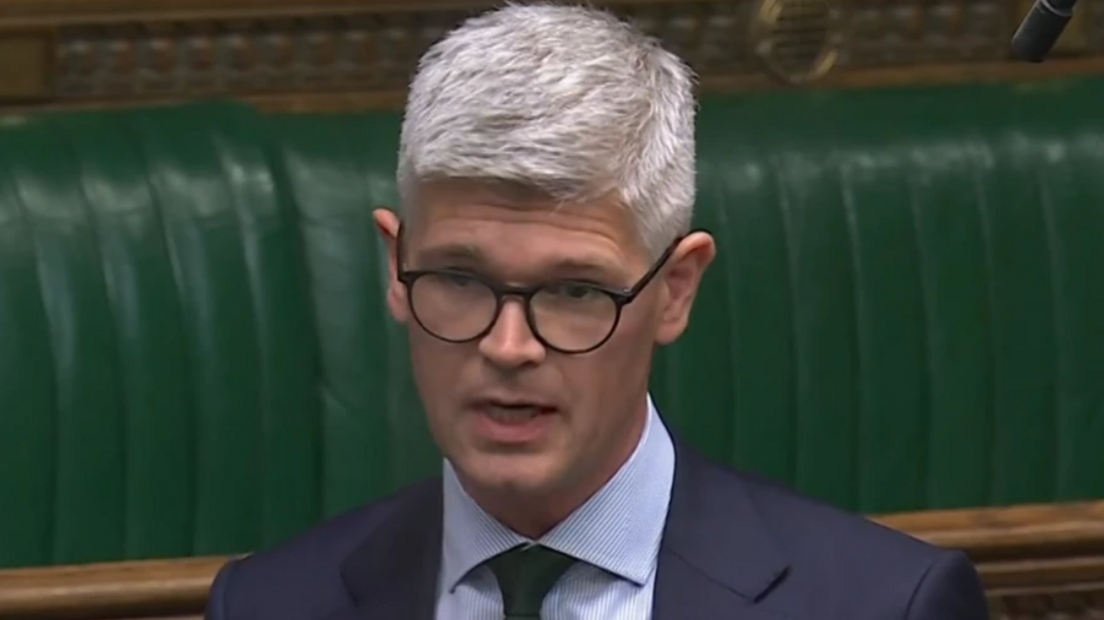
Surrey Heath's Liberal Democrat MP Al Pinkerton is introducing a Private Member's Bill
Surrey Heath MP Dr Al Pinkerton is introducing his Private Member's Bill, the Vehicle Registration Marks (Misuse and Offences) Bill, to try to crack down on the practice.
"We're asking for far greater fines for those engaged in number plate cloning and calling for far greater physical security in the number plate system itself," he said.
The DVLA said offenders could face a prison sentence of up to two years, a fine, or both.
Earlier this year online retailer Amazon said it was banning the sale of car number plates on its platform after a BBC London investigation exposed that they were being illegally supplied.
All sellers of number plates in the UK must be registered with the DVLA.
Sellers must request identification showing a buyer's name and address, as well as their entitlement to use the plate.
Rob Laugharne, chairman of the British Number Plate Manufacturers Association, said there needs to be more checks at the point of sale.
"There are ways you can supply number plates responsibly online, by carrying out human intervention or AI intervention to verify entitlement to the documentation," he said.
"It should be more difficult to obtain a number plate in the first place and that requires security features in the product itself."
A government spokesperson said: "The cloning and defacing of number plates is illegal and provides cover for criminals.
"We are working with the police, the DVLA and other partners to crack down on these crimes."
Follow BBC Kent on Facebook, external, on X, external, and on Instagram, external. Send your story ideas to southeasttoday@bbc.co.uk, external or WhatsApp us on 08081 002250.
Related topics
- Published12 February
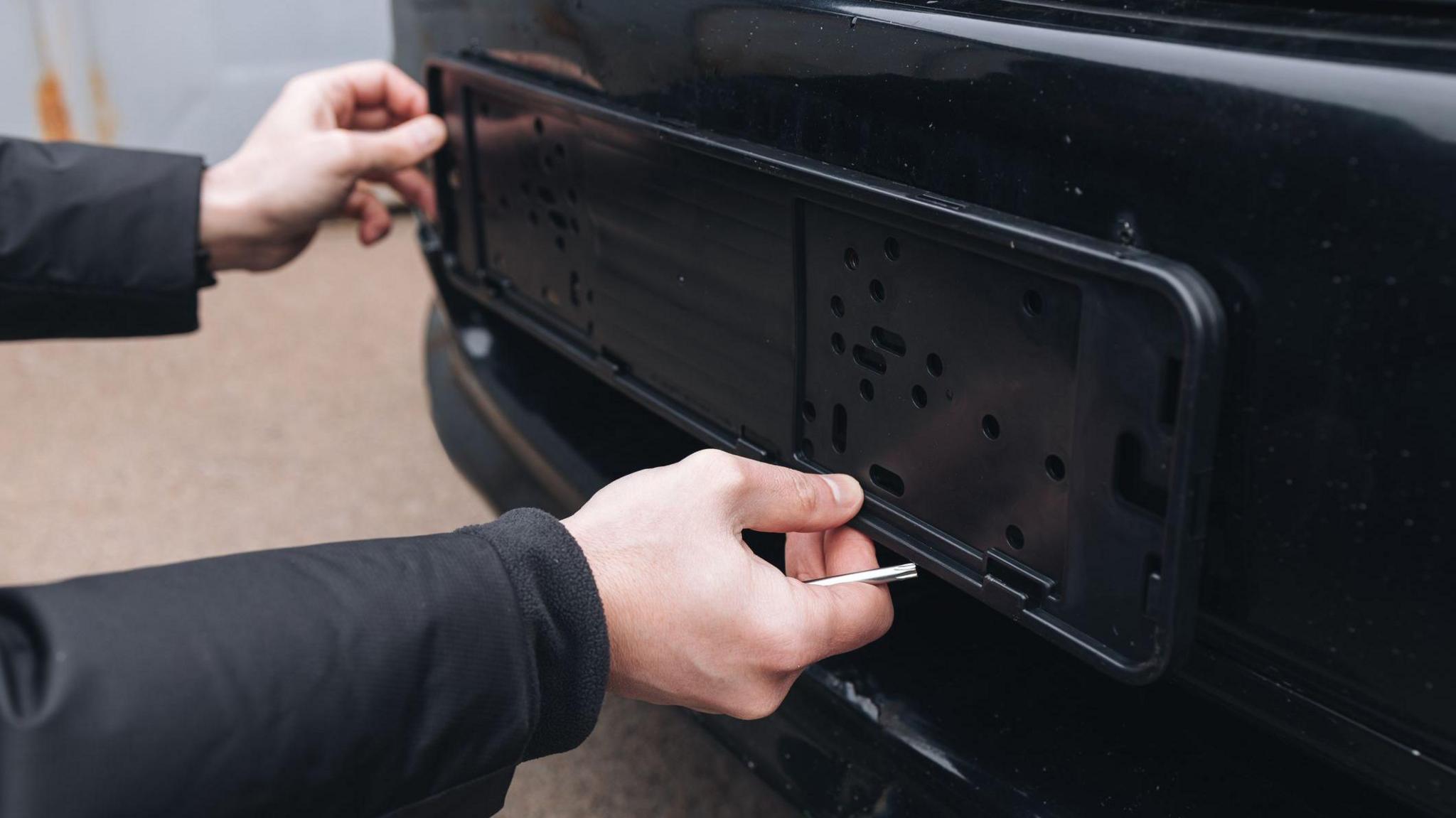
- Published14 March
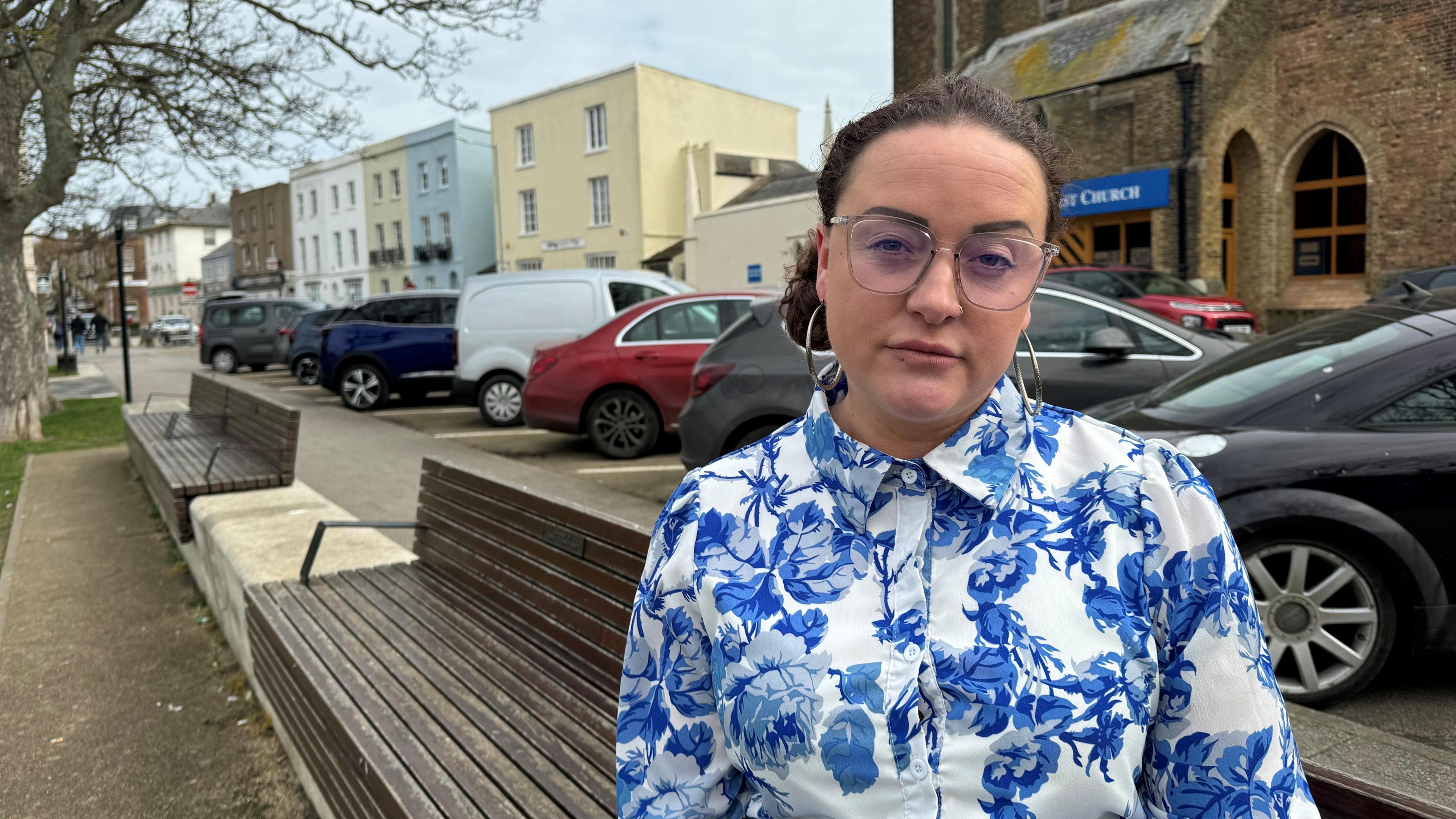
- Published14 August 2024
